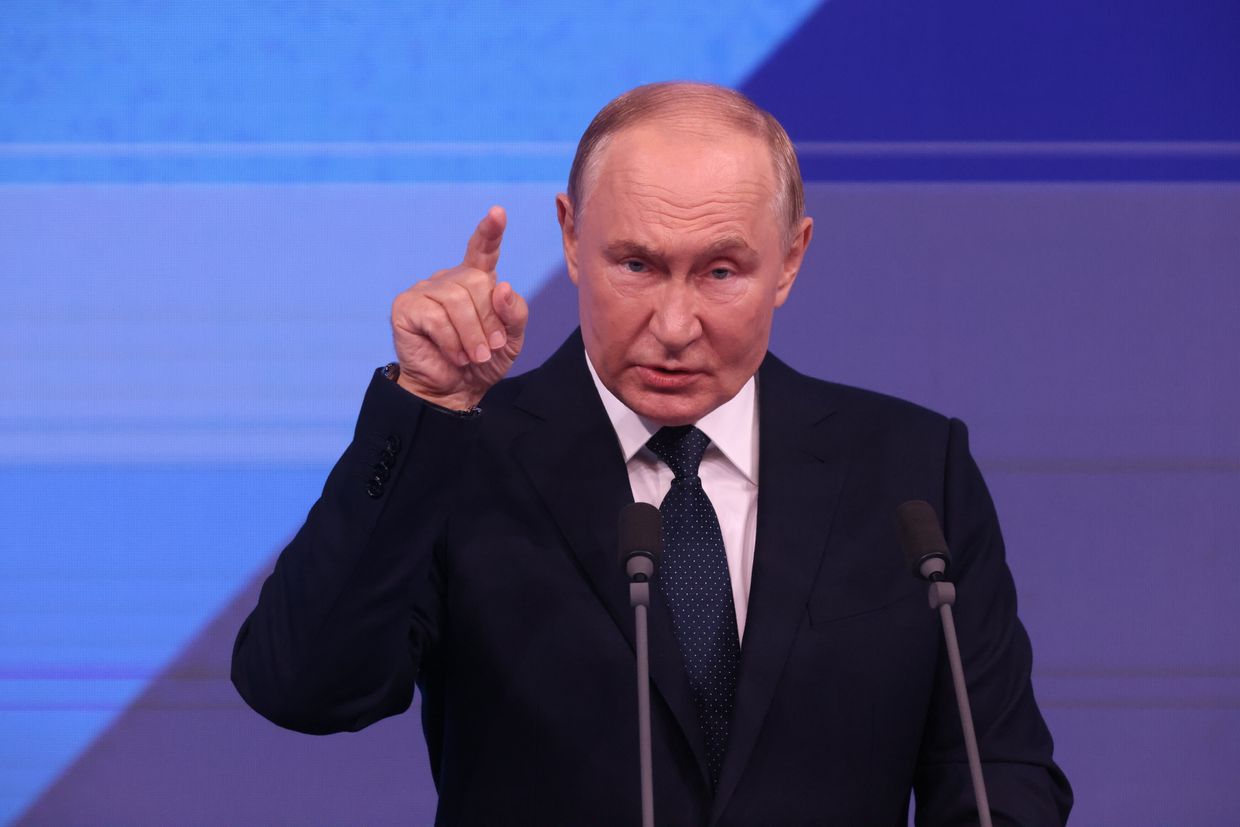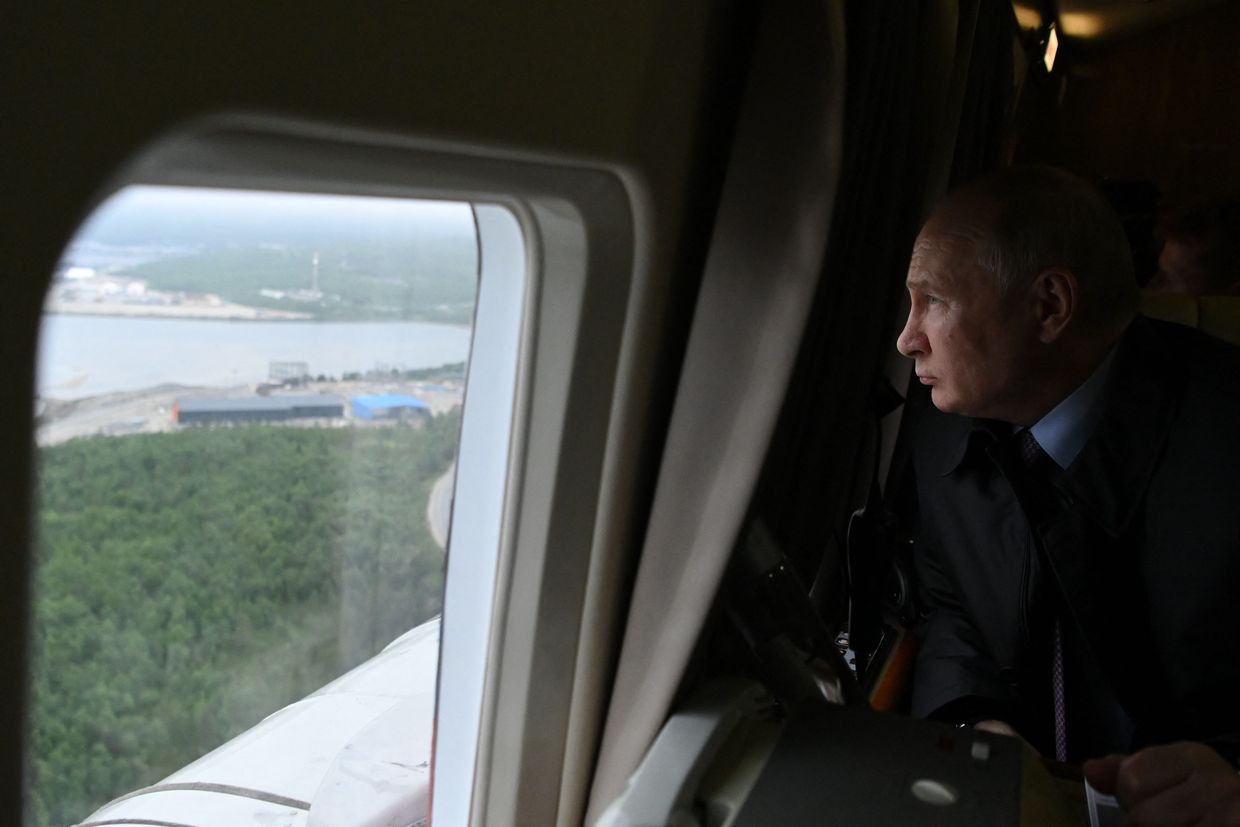The Counteroffensive: Why doesn’t Ukraine have a national military cemetery?

A woman visits a cemetery where Ukrainian soldiers are buried in Brovary, Ukraine, on April 11, 2023. (Roman Pilipey/Getty Images)

Tim Mak
Editor’s Note: This article was published by the twice-weekly newsletter “The Counteroffensive with Tim Mak” on Sept. 28, 2024, and has been re-published by the Kyiv Independent with permission. To subscribe to The Counteroffensive, click here.

Vira Lytvynenko hasn’t been able to bury her son since March 2022, when he was killed defending Ukraine against a Russian offensive near the Mariupol Drama Theater. Instead, she keeps his ashes at home.
Even in the third year of Russia’s full-scale invasion, and over 10 years since the war began, Ukraine still does not have a national military cemetery. Many veterans and their families fear this neglect reflects a lack of respect for those who sacrificed their lives. It’s as if there were no Arlington National Cemetery in the United States – a sacred space for remembrance and a powerful symbol of national gratitude.
"Even in the third year of Russia’s full-scale invasion, and over 10 years since the war began, Ukraine still does not have a national military cemetery."
Ukrainians yearn for a similar space to honor their soldiers.
“The state should have provided the best possible honoring of its fallen… there are certain sacred and infallible things in society. Civilian cemeteries are already running out of space,” said Taras Ishchyk, who is serving in the Ukrainian military.
Instead of transparently constructing a national memorial cemetery, the authorities have dragged out the selection of a site, proposing locations far from Kyiv. The design and tendering process is marred by scandals and corruption, which critics say further diminishes the significance of soldiers' sacrifices.
Vladyslav Lytvynenko, Vira’s son, was a soldier with Ukraine’s Azov Brigade. He hailed from Donetsk Oblast and lived in Mariupol until 2014 when Russia’s war in Ukraine’s Donbas region and annexation of Crimea forced his family to move to Kyiv. In 2015, Vladyslav returned to Mariupol and joined Azov, where he fought in several battles.
“In 2022, he (Vladyslav) was supposed to leave the army and start a civilian life, because he hadn’t experienced it as an adult, having been fighting since he was 20,” Vira said, her eyes slowly filling with tears. Vira is just one among many families waiting to honor their fallen.
According to Olena Tolkachova, the head of the Azov Patronage Service, which cares for the brigade’s soldiers and families, the service has been advocating for a national military cemetery since 2014.
“We have a family who is so hopeful for this particular (military) cemetery that they did not take the body out (of the morgue),” Tolkachova said. “And they are already in such a very depressed state because the cemetery has not been built in two years.”
But despite the urgency, there has been little progress. Local regions have been left to bury their soldiers within existing cemeteries, where graves often blend in with civilian ones. It wasn’t until May 2022 that a law was passed to simplify the land and construction procedures for the national cemetery. The Kyiv city administration designated a site near Bykivnia forest, a burial ground for victims of former Soviet leader Joseph Stalin’s repressions.
In August 2023, however, the government abruptly changed the site. The new location is over 20 kilometers from Kyiv's center, frustrating families like Vira's, who must now endure a two-hour commute to visit their loved ones. The cemetery, initially envisioned as a place easily accessible to the public to honor Ukraine’s sacrifices, now risks obscurity due to its distance.
Some families have already buried their relatives locally, tired of waiting. Others, like Vira, continue to hold out hope.

In the summer of 2023, Serhii Derbin was selected as the project’s architect, though there was no open competition for the large-scale national project. A tender was posted in the electronic public procurement system, but only one person allegedly applied.
"No one even knew about the design tender," said Dartsia Verytiuk, the creator of the Pantheon of Heroes concept in Ternopil. In response, Derbin told The Counteroffensive that the tender was officially announced on the website, available to anyone who wished to participate.
By the end of 2023, families were still unable to bury their fallen soldiers. The cemetery’s design wasn’t presented until December 2023, alongside new legislation to create the site.
The current design has been criticized for combining mismatched architectural elements, resembling both a supermarket and an ancient temple. Verytiuk, who had made suggestions for the memorial, said, "None of our comments were accepted, and the project wasn’t changed at all. It became clear everything had been decided long ago."
However, Derbin claimed that most professional feedback had been incorporated and that all decisions were balanced and well-considered.
In July 2024, a tender for the cemetery’s construction was announced. Only one consortium, Building UA, formed the day after the tender was posted, applied for the $44 million (1.8 billion hryvnias) project.
Critics were baffled by the government's preference for granite over lighter materials for the gravestones. As journalist Dariia Hirna explained, lighter-colored sandstone would evoke peace and tranquility, while gray or black granite could create an atmosphere of sadness.
One of the companies that won the tender was Akam, a granite producer from Dnipro. Akam belongs to a group of companies owned by Vadym Yermolaiev, who was sanctioned by President Zelensky in 2023 for conducting business in Russian-occupied territories. Yermolaiev’s whereabouts are unknown, and The Counteroffensive could not reach him for comment.
Construction at the cemetery has since been halted. In September, the Security Bureau of Ukraine (SBU) confirmed that Akam was part of Yermolaiev's sanctioned group of companies.
"This is a crime against the families of fallen soldiers and those still serving. Both tenders should be canceled, and an open international competition should be held instead," said serviceman Ishchyk.
This means that even this year, Ukraine’s fallen defenders will not find peace at a national cemetery, and their families will still have no place to honor them. That includes Vira Lytvynenko, whose son gave his life for Ukraine’s independence.
Editor’s Note: The opinions expressed in the op-ed section are those of the authors and do not reflect the views of the Kyiv Independent.













